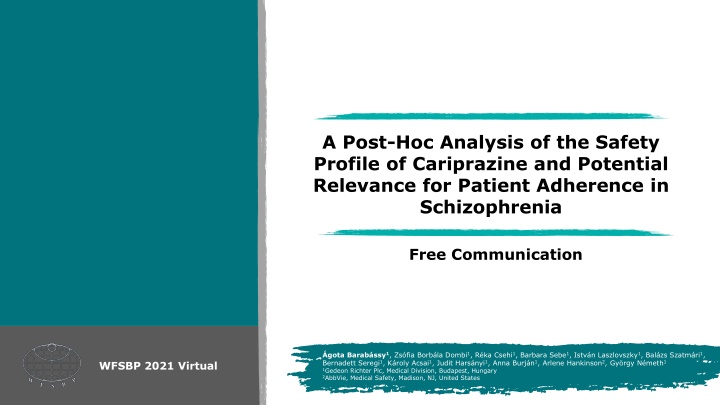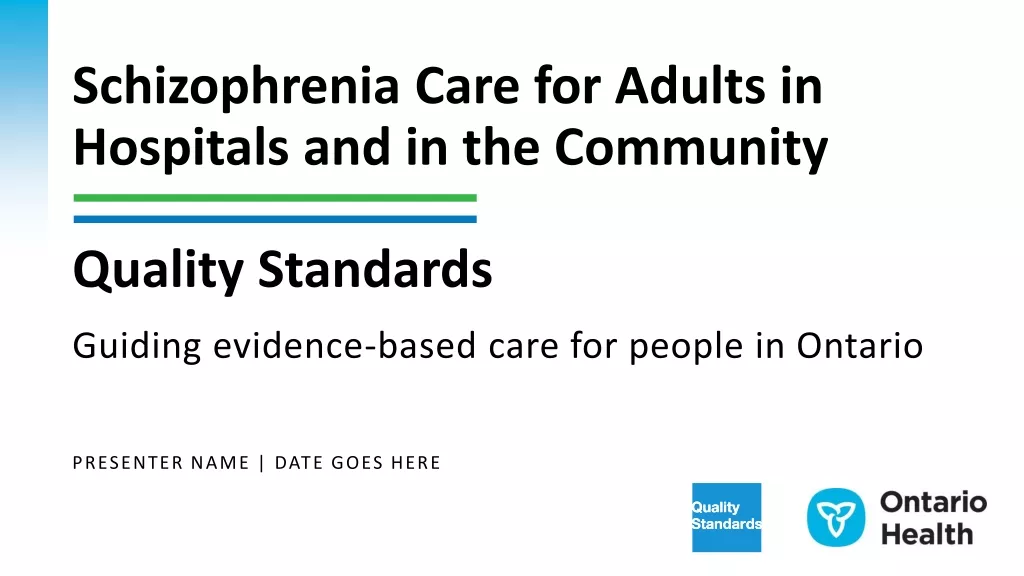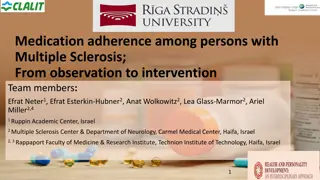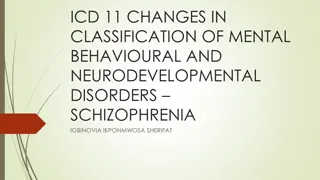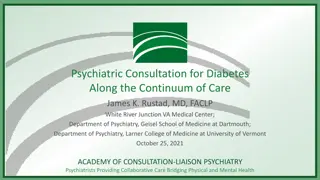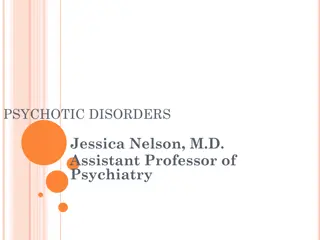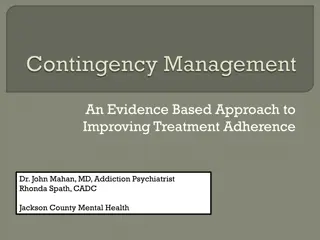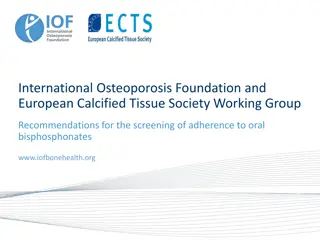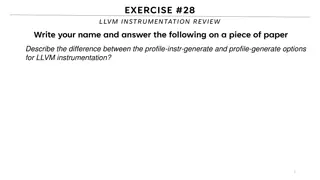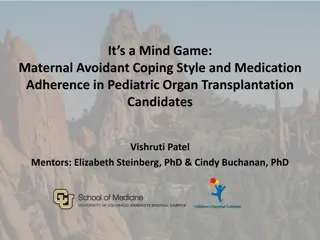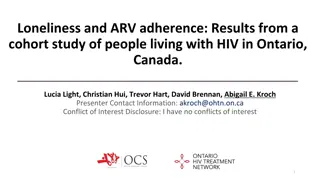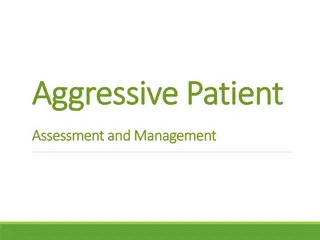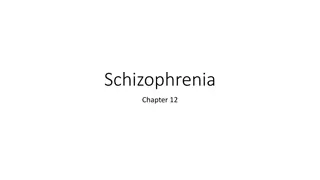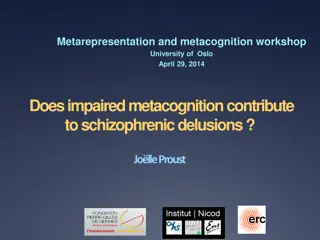Safety Profile of Cariprazine: Impact on Schizophrenia Adherence
This communication analyzes the safety of Cariprazine and its relevance for patient adherence in schizophrenia. Explore risk factors, importance of adherence, and impact of side effects on non-adherence.
Download Presentation

Please find below an Image/Link to download the presentation.
The content on the website is provided AS IS for your information and personal use only. It may not be sold, licensed, or shared on other websites without obtaining consent from the author.If you encounter any issues during the download, it is possible that the publisher has removed the file from their server.
You are allowed to download the files provided on this website for personal or commercial use, subject to the condition that they are used lawfully. All files are the property of their respective owners.
The content on the website is provided AS IS for your information and personal use only. It may not be sold, licensed, or shared on other websites without obtaining consent from the author.
E N D
Presentation Transcript
A Post-Hoc Analysis of the Safety Profile of Cariprazine and Potential Relevance for Patient Adherence in Schizophrenia Free Communication gota Barab ssy1, Zs fia Borb la Dombi1, R ka Csehi1, Barbara Sebe1, Istv n Laszlovszky1, Bal zs Szatm ri1, Bernadett Seregi1, K roly Acsai1, Judit Hars nyi1, Anna Burj n1, Arlene Hankinson2, Gy rgy N meth1 1Gedeon Richter Plc, Medical Division, Budapest, Hungary 2AbbVie, Medical Safety, Madison, NJ, United States WFSBP 2021 Virtual
Conflict of Interest gota Barab ssy is an employee at Gedeon Richter Plc. WFSBP 2021 Virtual
The importance of treatment adherence in schizophrenia Adherence is the extent to which a person's behaviour (taking medication, following a diet, and/or executing lifestyle changes) corresponds with the agreed recommendations from a healthcare provider.1 Non-adherent patients are 10 timesmore likely to have a psychotic relapse4 Non-adherent patients are 4 timesmore likely to be admitted to hospital4 26.5 68.8% of schizophrenia patients are non-adherent2,3 References: 1. WHO (2003) Adherence To Long-term Therapies: Evidence For Action 2. Eticha et al. (2015) PLoS ONE 10(3): e0120560. 3. Sultan et al. (2016) Middle East Curr. Psychiatry 23 (1), 27 34 4. Higashi et al. (2013). Therapeutic advances in psychopharmacology, 3(4), 200 218. WFSBP 2021 Virtual
Risk factors for non-adherence Nonadherence to medication includes a range of patient behaviours, from treatment refusal to irregular use or partial change of daily medication doses.1 Factors associated with nonadherence Poor insight2 [55.6%] Side effects2 [27.8%] Relapse4 Substance abuse2 [36.1%] Cognitive impairments2 [13.4%] Medication beliefs1 Negative attitude2 [30.5%] Low socioeconomic status5 Younger age3 References: 1. Higashi et al. (2013). Therapeutic advances in psychopharmacology, 3(4), 200 218. 2. Velligan et al. (2017 Patient preference and adherence, 11, 449 468. 3. Lang et al. (2010) Psychiatr. Serv. 61 (12), 1239 1247. 4. Hui et al. (2016) Schizophr. Res. 174 (1 3), 144 149. 5. Ahmad et al. (2017) Asian J. Psychiatr. 30, 39 43. WFSBP 2021 Virtual
Side effects and non-adherence Side effects are often viewed as being worse than the positive symptoms of psychosis by patients and a group of them tend to stop taking their medication after being discharged from the hospital.1 Side effects either extremely or very bothersome3 27% of patients think APs do more harm than good3 Weight gain 56% 86 98% of patients report experiencing side effects2,3 All significantly related with lower rates of adherence2 Sexual dysfunction 55% Trouble concentrating 54% References: 1. Salzmann-Erikson M, Sj din M. (2018) Int J Nurs Stud. 85:7-18 2. Dibonaventura et al. (2012) BMC Psychiatry;12:20. 3. Doane et al. (2020). Patient preference and adherence, 14, 2043 2054. WFSBP 2021 Virtual
Cariprazine, a novel antipsychotic medication Cariprazine is a novel antipsychotic medication with potent dopamine D3-D2 partial agonism and preferential binding to the D3 receptors.1 Moderate affinity Low, or no affinity High affinity Serotonin 5-HT2A Histamine H1 Antagonist Serotonin 5-HT2C Adrenergic 1 Antagonist Antagonist Dopamine D1 & D4 Antagonist Adrenergic 2 Antagonist Muscarinic M1 Dopamine D3 Dopamine D2 Serotonin 5-HT2B Antagonist Serotonin 5-HT1A Partial agonist Partial agonist Partial agonist Antagonist Antagonist References: 1. Kiss. J Pharmacol Exp Ther 2010.333:328 340; Partial agonism is represented with dots, circles show pKi values. WFSBP 2021 Virtual
Cariprazine clinical development The clinical development program of cariprazine included 42 studies; numerous PK studies, 8 schizophrenia studies, 4 mania studies, 4 BD and 4 MDD studies. Schizophrenia RGH-MD-03 Mania Bipolar depression RGH-MD-52 Major depression RGH-MD-71 2 RGH-MD-31 2 2 2 RGH-MD-16 2b RGH-MD-32 3 RGH-MD-53 3 RGH-MD-72 3 RGH-MD-04 3 RGH-MD-33 3 RGH-MD-54 3 RGH-MD-75 2b RGH-MD-05 3 RGH-MD-36 safety RGH-MD-56 2b RGH-MD-76 safety RGH-MD-06 3 RGH-188-005 3 RGH-MD-11 safety RGH-MD-17 safety WFSBP 2021 Virtual
Aim & Methods The aim of the present analysis was to understand the safety profile of cariprazine from the perspective to medication adherence. 4 short-term, randomized, 6-week double-blind, placebo- controlled studies 4 long-term, 48-week open- label, flexible- dose safety studies Adult schizophrenia patients (18-65 years) according to DSM-IV Current exacerbation of symptoms Adverse event (AE) recordings, clinical laboratory tests, vital sign parameters, weight changes, and electrocardiograms (ECGs) Patient population Data Adverse events WFSBP 2021 Virtual
Demographics Data from 2048 cariprazine-treated and 683 placebo-treated patients were analyzed.1 Age, mean 37.8 38.2 Sex, male (%) 68.8 71.0 N = 2048 N = 683 CARIPRAZINE TOTAL 1.5-6.0 mg PLACEBO Weight, mean (kg) 77.5 77.5 Duration of schizophrenia (years) 12.6 12.4 Age at onset of original diagnosis of schizophrenia (years) 25.6 25.2 References: 1. Barab ssy , Sebe B, Acsai K, Laszlovszky I, Szatm ri B, Earley WR, N meth G2021 Apr 7;17:957-970. doi: 10.2147/NDT.S301225. Erratum in: Neuropsychiatr Dis Treat. 2021 May 17;17:1481. PMID: 33854317; PMCID: PMC8040316 WFSBP 2021 Virtual
Discontinuation 52.8% of cariprazine-treated patients completed the studies, while this number was 51.2% in the placebo arm.1 Most common reasons for discontinuation CAR 251 (12.3) PBO 76 (11.1) CAR 433 (21.1) PBO 74 (10.8) CAR 162 (7.9) PBO 100 (14.6) Insufficient therapeutic response Withdrawal of consent Adverse event References: 1. Barab ssy , Sebe B, Acsai K, Laszlovszky I, Szatm ri B, Earley WR, N meth G2021 Apr 7;17:957-970. doi: 10.2147/NDT.S301225. Erratum in: Neuropsychiatr Dis Treat. 2021 May 17;17:1481. PMID: 33854317; PMCID: PMC8040316 WFSBP 2021 Virtual
Cariprazine may promote adherence 74% of cariprazine-treated patients experienced at least one TEAE vs 63% of placebo-treated patients. Sedation 3.1% 3.7% 0.1% 0% Prolactin elevation CARIPRAZINE CARIPRAZINE TOTAL 1.5-6.0 mg PLACEBO PLACEBO 0.3% 0.5% Cognition impairment 1.0% 0.3% Sexual dysfunction 1.5% Weight increased 5.1% SMPC: In the long term maintenance of effect study, there was no clinically relevant difference in change of body weight from baseline to end of treatment (1.1 kg for cariprazine and 0.9 kg for placebo). WFSBP 2021 Virtual
Conclusions Adherence to antipsychotic medication is important as patients who stop taking their medication are more likely to relapse and be admitted to the hospital. One of the main risk factors for nonadherence are medication side effects, that are often being perceived to be worse than the symptoms themselves. In particular, weight gain, sexual dysfunction and concentration difficulties are extremely bothersome for patients. In this pooled safety analysis using data from all the studies included in the clinical development program in schizophrenia, cariprazine was safe and generally well tolerated in patients with acute and long-term exposure in the recommended dose range. Discontinuation rate due to side effects was similar to placebo, and TEAEs that are most relevant for patients and are likely to result in nonadherence were low. WFSBP 2021 Virtual
Thank you for your attention! WFSBP 2021 Virtual
